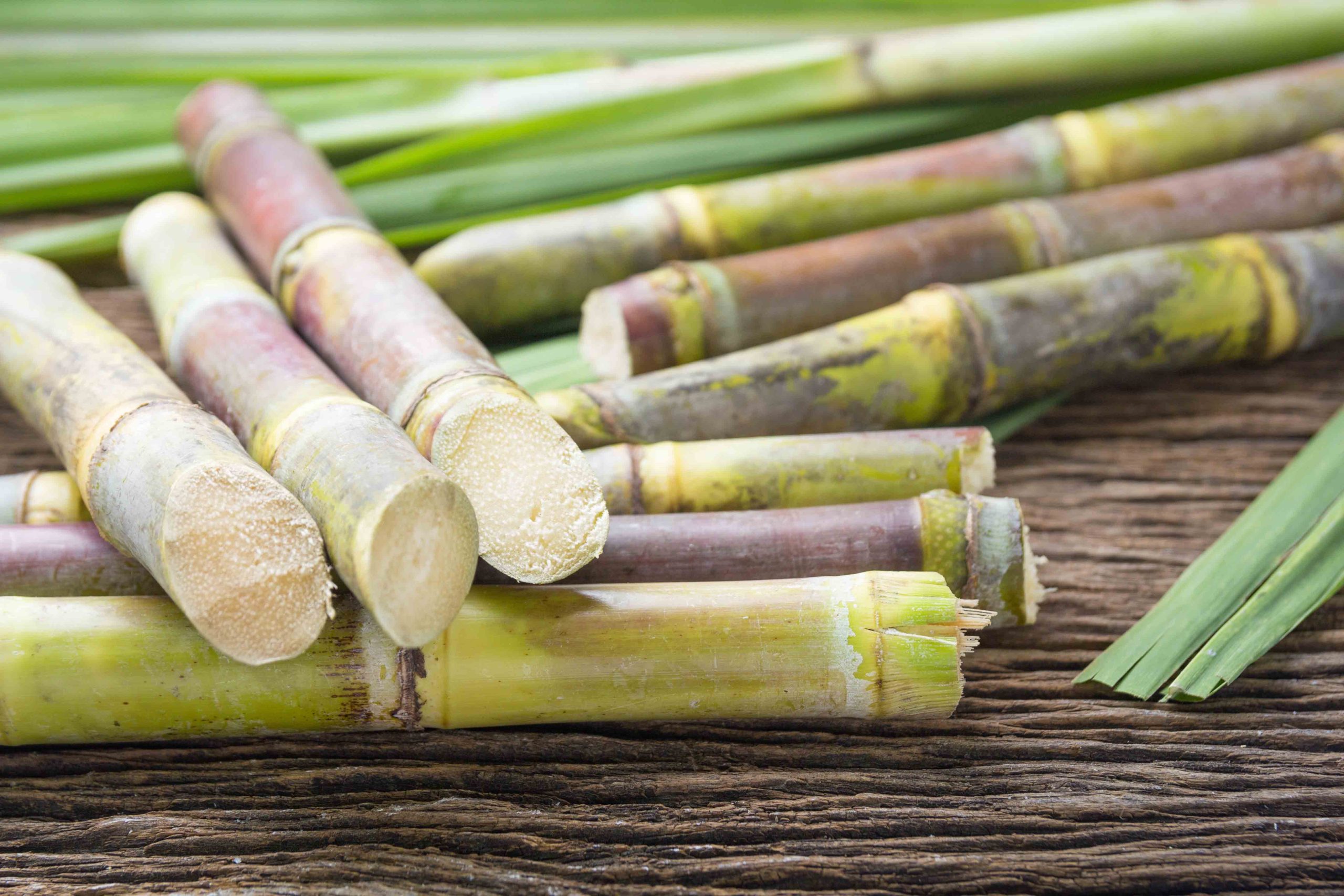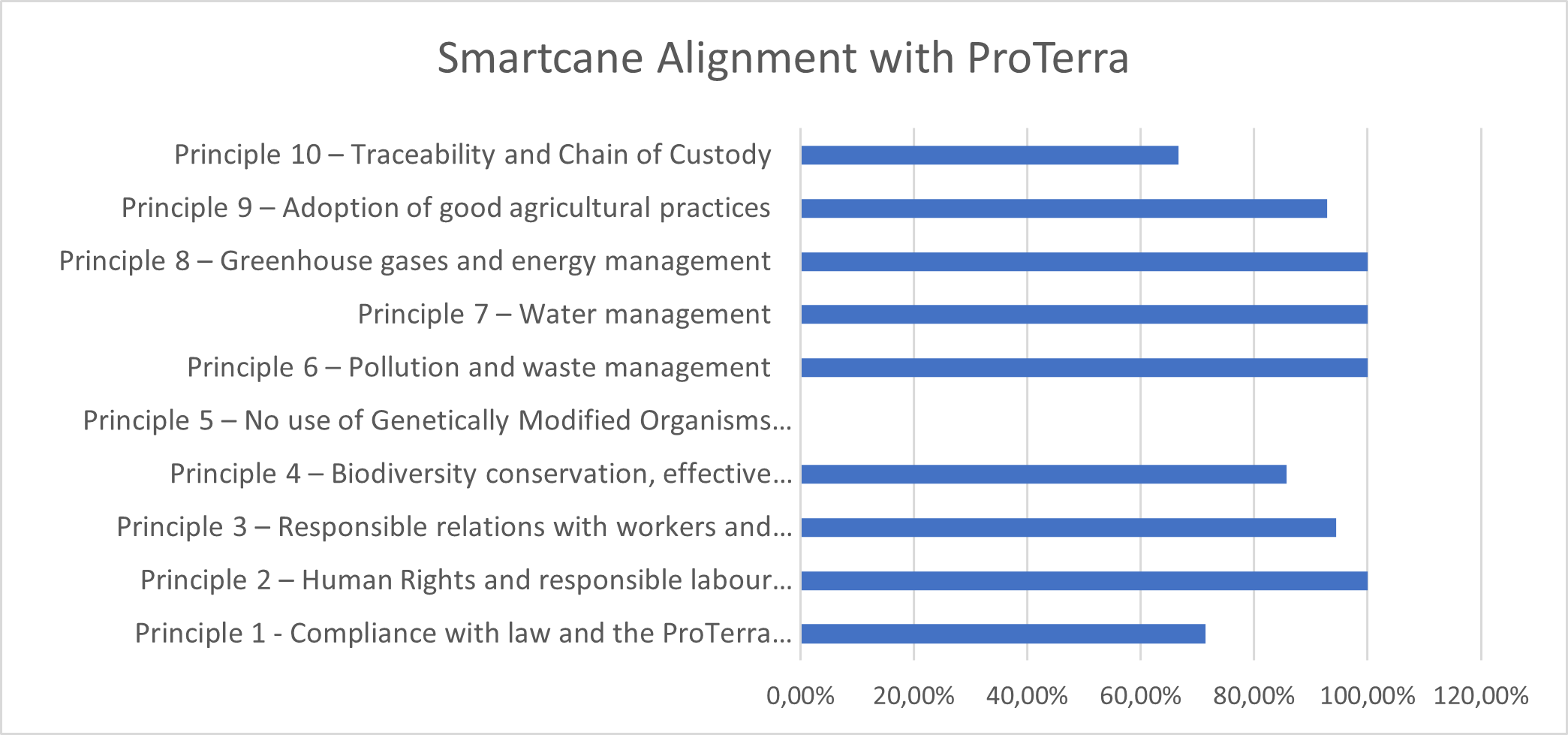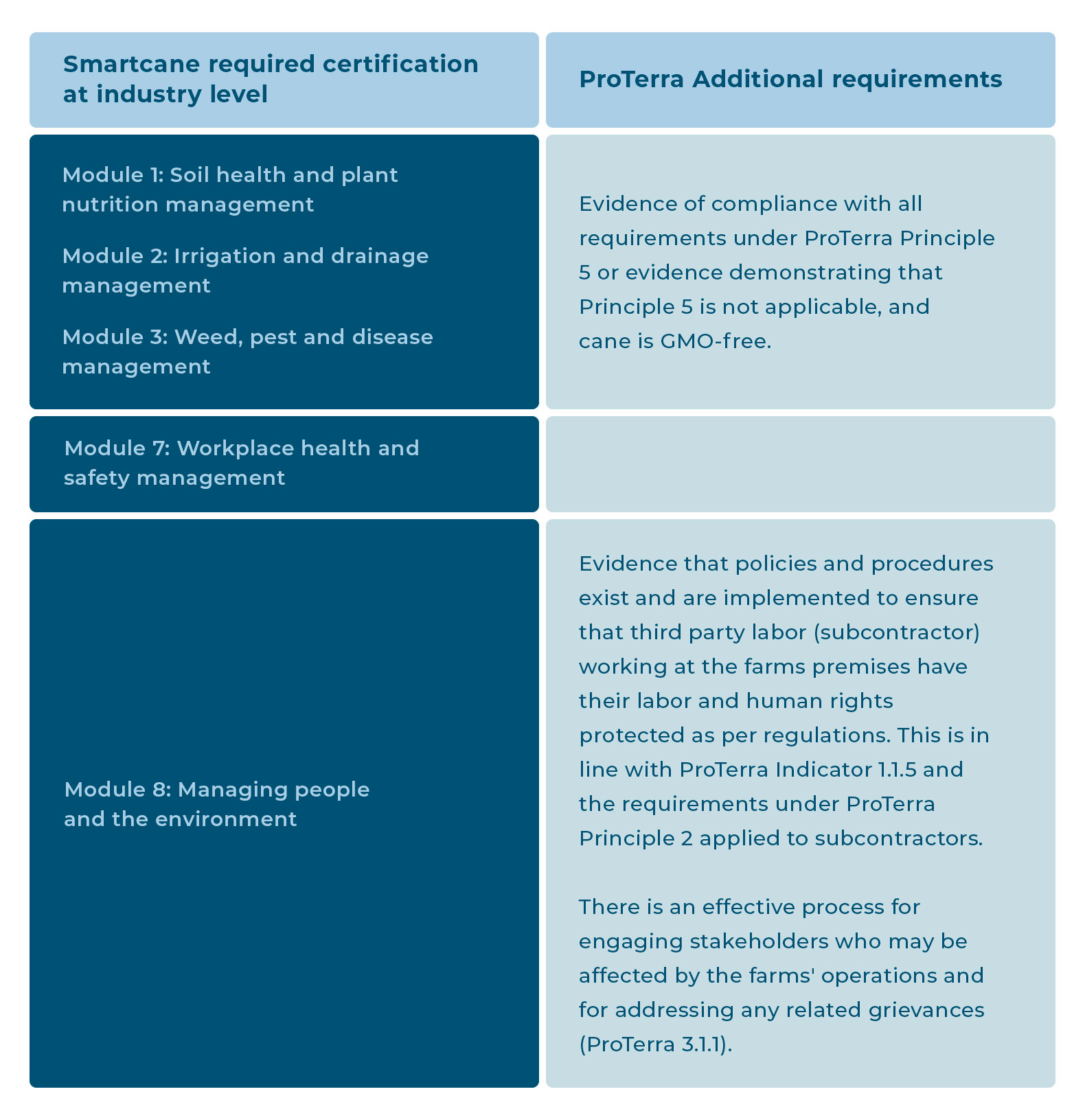ProTerra v4.1 – Smartcane benchmark results

ProTerra Foundation and CANEGROWERS Australia have undertaken a benchmarking exercise of ProTerra Standard V4.1 and the Smartcane BMP V2 (Smartcane).
About Smartcane
Smartcane is the Queensland sugarcane industry’s voluntary best practice program. The programme is managed by CANEGROWERS Australia, a grower-owned organisation supporting and promoting Australian sugarcane growers.
Under the program the unit of certification is the farm. The program is composed by eight modules as follows:
- Module 1: Soil health and plant nutrition management
- Module 2: Irrigation and drainage management
- Module 3: Weed, pest and disease management
- Module 4: Crop production and harvest management
- Module 5: Farm business management
- Module 6: Natural systems management
- Module 7: Workplace health and safety management
- Module 8: Managing people and the environment
As stated in Smartcane BMP Procedure Version 3 (December 2017), “the Smartcane BMP Program provides a process to determine, by third-party audit, if an individual sugarcane farming business meets ‘industry standard’ or ‘above industry standard’, in each of the eight BMP modules. A business that meets at least industry standard for each practice within a module, can be certified in that module. In Smartcane BMP, accredited farming businesses are defined as those certified by independent audit to meet ‘industry standard’, or ‘above industry standard’, for every practice in at least the three core modules of 1. Soil health and nutrient management. 2. Irrigation and drainage management. 3. Weed, pest and disease management”.
The first three modules are considered core and are entry points in the program. These modules provide very specific technical details on the best practices associated with sugarcane plantation and farm management.
Once accredited, a farming business can seek certification in one or more of the other modules of the program.
About the ProTerra Standard
The ProTerra Standard has four core aims: to foster good agricultural practices; to secure the supply of sustainably produced, fully traceable, non-GMO ingredients for feed and food; to protect the environment and to promote that workers and communities be treated with dignity and respect. It is organised into principles that deploy in criteria that in its turn deploy into indicators. Indicators are ultimately implemented by certified organisations. The ProTerra principles are:
- PRINCIPLE 1: Compliance with law, international conventions and the ProTerra Standard;
- PRINCIPLE 2: Human rights and responsible labour policies and practices;
- PRINCIPLE 3: Responsible relations with workers and community;
- PRINCIPLE 4: Biodiversity conservation, effective environmental management and environmental services;
- PRINCIPLE 5: No use of Genetically Modified Organisms (GMOs);
- PRINCIPLE 6: Pollution and waste management;
- PRINCIPLE 7: Water Management;
- PRINCIPLE 8: Greenhouse gases and energy management;
- PRINCIPLE 9: Adoption of good agricultural practices, and
- PRINCIPLE 10: Traceability and Chain of Custody.
ProTerra Indicators are divided into core indicators and non-core indicators. Core indicators are those that the ProTerra Foundation considers essential to mitigate negative sustainability impacts. These indicators must be met by applicants to be granted the ProTerra Standard certification. To be ProTerra certified, organisations must meet 80% of all indicators, in which all core indicators are included. Certification is based on a third-party audit conducted by an accredited certification body.
The ProTerra Certification is applicable to distinct levels of operation across the food and feed production chains: Level I: Agricultural production: Level II: Transport, Storage, Traders and Dealers and Level III: Industrial Processing.
The benchmarking exercise
Despite the differences in scope and geographical application, both Smartcane and ProTerra have a set of common issues (including alignment on land conversion cut-off dates), with ProTerra providing a higher level of detail on topics related to environmental protection (nature conversation and pollution prevention), social and labour issues while Smartcane focuses mainly on legal compliance. Smartcane also provides significant detail on best agricultural practices for sugarcane.
The result of the benchmarking exercise showed the alignment of Smartcane with ProTerra requirements related to farms (Level 1 under ProTerra), as presented in figure 1 below.
Australian farms that have received a Smartcane certification for modules 1,2,3,7 and 8, that meet industry standards, and that can provide objective evidence that they are in compliance with several additional requirements, may be granted a ProTerra Certification valid for 1 year from the date of the Smartcane audit. Detailed ProTerra certification requirements for Smartcane-certified farms are listed under Table 2.
Figure 1: Smartcane Alignment with ProTerra v4.1

Table 2: Detailed ProTerra certification requirements for Smartcane certified farms

The benefits for farmers of the double certification (ProTerra and Cane Growers Australia) include the fact that sugarcane producers who are already Smartcane certified can become ProTerra certified with a reduced effort and cost, and can then access the additional market through ProTerra certification.